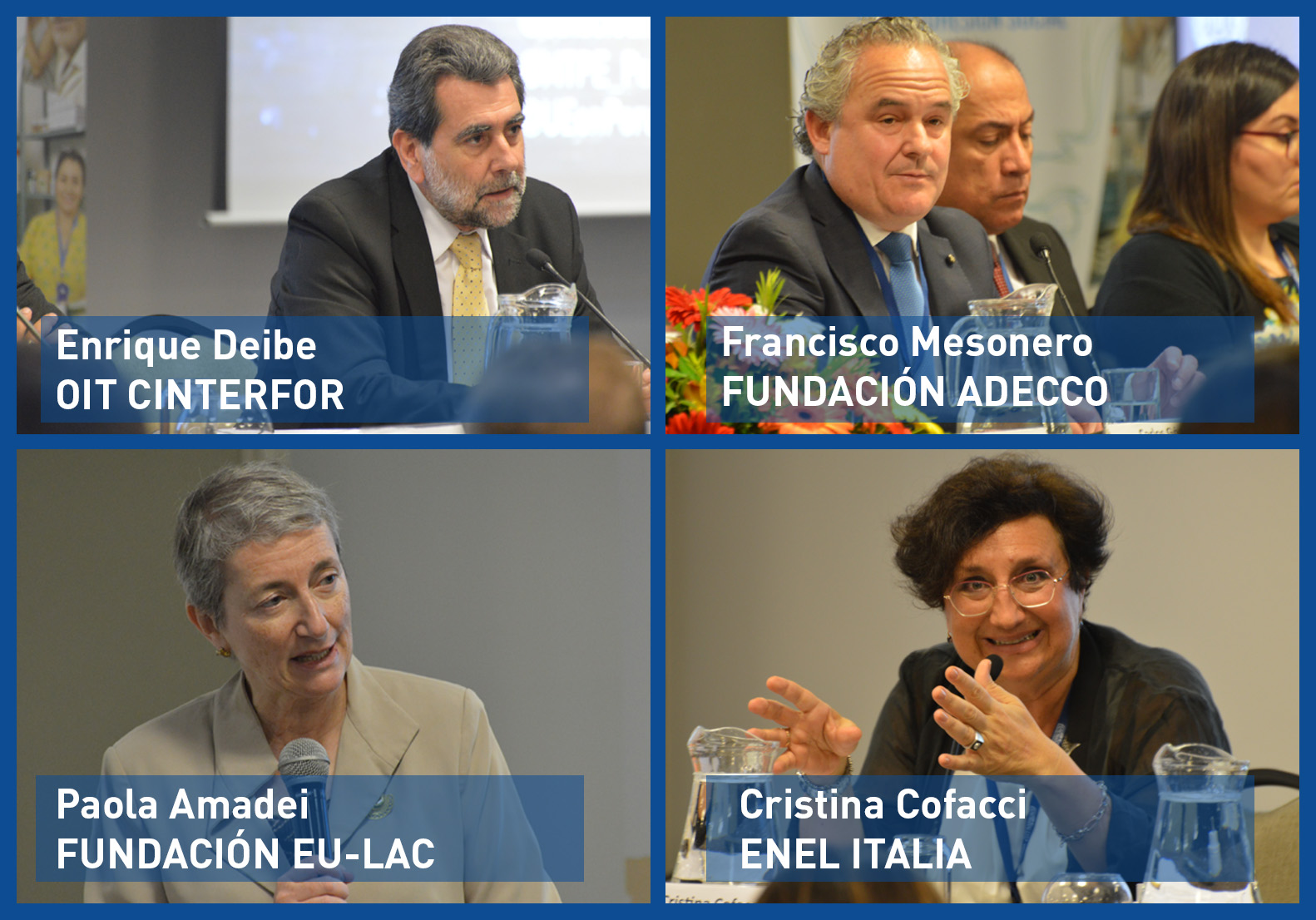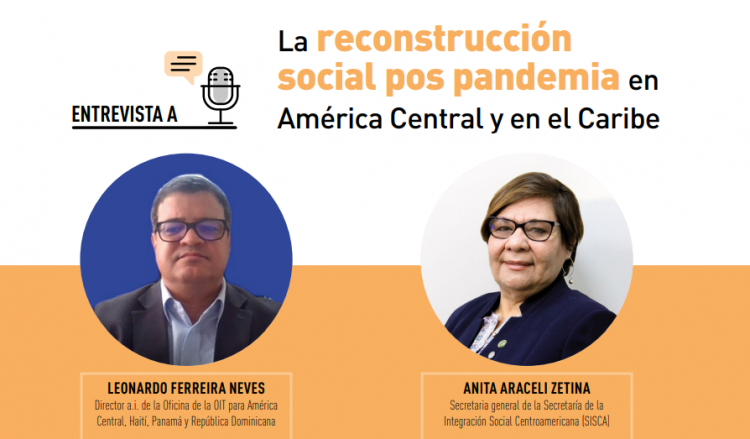Interview with participants of the seminar "More young people in companies", held in Lima in May 2019.

In May 2019, the “More young people in companies” seminar was held in Lima to share experiences on how work and training can improve youth employability. 120 people from more than 60 international institutions and organisations from some 20 countries of Europe, Latin America and the Caribbean took part.
At Recíprocamente we compiled some key phrases from the meeting, based on two questions, answered by: Enrique Deibe, Director of the Inter-American Centre for the Development of Knowledge in Vocational Training of the International Labour Organisation ILO-CINTERFOR, Uruguay; Cristina Cofacci, ENEL Italy, member of the Alliance for Apprenticeship of the European Union; Francisco Mesonero, CEO of the ADECCO Foundation, Madrid, Spain; and Paloma Amadei, Executive Directress of the EU-LAC Foundation.
Is learning by working the way to youth’s inclusion in work?
Enrique Deibe
At these times, great transformations are taking place in the world of production, in the world of work. Education and training are going to be an important key to finding better conditions and so that our young people can progress better.
Cristina Cofacci
From the perspective of companies, large companies in particular, but also SMEs, learning is a tool that allows the updating of the professional skills system and enriches companies’ assets with constant dialogue with schools, universities and, let’s say, the training institutes. It is therefore a scheme that creates competitive edge and enriches company innovation.
Francisco Mesonero
The apprenticeship system, whether it be the apprenticeship contract or the dual training system, allows needs and skills to be adapted to the requirements of the job position in companies to the extent that in the workplace and through the apprentices’ training in the workplace, they acquire such skills, let’s say, on matters that, because of the companies’ transformation and own innovation, are not included in schools. It is more comprehensive, especially since it expressly adapts to companies’ specific training needs.
Dove Amadei
We see vocational training as a social integration tool. There is a gap at a social level that vocational training can help fill and this is valid both in Latin America and the Caribbean and within the European Union.
What should the dialogue between the sectors be like to ensure a suitable apprenticeship contract?
Enrique Deibe
It must be built on dialogue, on the agreement of workers, employers and governments, on agreeing how responsibilities are distributed, how training and learning processes are financed, and how the regulatory frameworks are established to provide it with a solid base, which make it sustainable over time and allow it to be well applied, especially among young people.
Cristina Cofacci
In designing the development of the learning contract, the important thing is ongoing dialogue. Particularly important is the contribution of the social agents, in other words the companies and business associations and the workers’ representatives, because building a professional and training profile requires a clear system of rules, connected to the collective agreements.
Francisco Mesonero
All employment contracts, including apprenticeship contracts, must be the result of social dialogue between the parties. In the case of apprenticeships, which is not an exceptional case, but which I believe the unions, the employers and the government have to sit down and talk about and, depending on the legislation that exists in each country in the field of education, in terms of employment, regulate all aspects of the apprenticeship contract, be it the situation of the apprentice, their employment relationship, their salary, their social coverage and their social protection, and also regulate the figure of the tutor.




